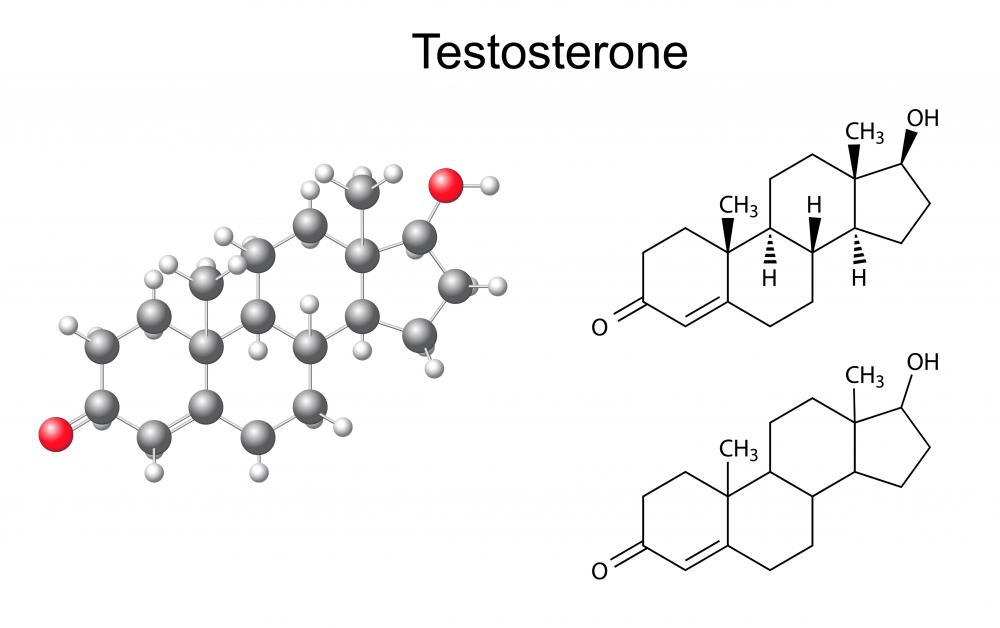At TheHealthBoard, we're committed to delivering accurate, trustworthy information. Our expert-authored content is rigorously fact-checked and sourced from credible authorities. Discover how we uphold the highest standards in providing you with reliable knowledge.
What is Klinefelter's Syndrome?
Klinefelter's syndrome is a very common genetic disorder in which a man is born with an additional X chromosome. In some cases, more than one extra X chromosome may be present. This condition is also sometimes referred to as XXY, referencing the arrangement of sex chromosomes in people who have it, although Klinefelter's syndrome can also take the form of XXYY, or other configurations.
The condition was first described in 1942 by Doctor Henry Klinefelter. It is estimated that around one in every 500 males has Klinefelter's syndrome. The condition is congenital, caused by abnormalities in embryonic development, and it can cause a wide variety of symptoms. Not all patients experience the same medical issues in association with Klinefelter's syndrome, which can make it difficult to recognize.

Physically, men with this condition tend to be weaker and somewhat taller than their counterparts, and they may have slightly androgynous appearances, especially around the face. Occasionally, patients may develop extra breast tissue, and in around one in 10 cases, this breast tissue can be substantial enough for surgical treatment to be recommended. Some patients also experience shyness and social awkwardness, and cognitive impairments, especially with language processing, are not uncommon.

People are often unaware that they have Klinefelter's syndrome until they want to have children. The condition causes a decline in the production of testosterone, which results in limited fertility, and a diagnosis of Klinefelter's syndrome may be arrived at when a couple goes to a fertility doctor to understand why they are having trouble with their attempts at getting pregnant. In other cases, the condition may be diagnosed at an earlier age, usually as a result of the emergence of several symptoms which make a doctor suspicious.

It is not possible to cure an XXY male of the condition, but he can take steps to reduce the effects of Klinefelter's syndrome on his life. Taking testosterone injections during puberty can result in more conventional physical development, for example, and speech therapy can help with language issues. If infertility is a cause of distress, it is sometimes possible to reproduce with assisted methods in which sperm are extracted and utilized in the fertilization of an egg.

Many men with this condition live healthy, active lives, and they may be totally unaware of their slightly unusual chromosomes. A diagnosis with Klinefelter's syndrome is not the end of the world by any means, and it often results in fairly minimal disruption to a man's life.
AS FEATURED ON:
AS FEATURED ON:
















Discussion Comments
Klinefelter's syndrome is not congenital. XXY is congenital. Klinefelter's syndrome does not develop until after the onset of puberty in some XXY and variant males. Maybe 'some' is insufficient, but we can't say all and we can't say most as we don't know of every instance of every XXY male or what percentage of those go on to develop Klinefelter's syndrome. And Klinefelter's syndrome, which is the symptoms of low testosterone in XXY and variant males, called seminiferous tubule dysgenesis, has nothing at all to do with anything but hypogonadism.
Think of it like this: one side of the page lists the karyotypes, while the other side lists the symptoms of, and the diseases associated with, the karyotypes. Klinefelter's syndrome will be in that list, not the karyotype list, as will all learning, psychiatric and psychological symptoms and diseases.
Clarification: Klinefelter's syndrome is not a disease at all, it is the symptoms of the disease Seminiferous Tubule Dysgenesis, which affects only the testes as seminiferous tubules are only found in the testes. All males with seminiferous tubule dysgenesis have Klinefelter's syndrome even XXYY males. What they may not all have is the same symptoms of seminiferous tubule dysgenesis. All the other information below is still accurate.
Klinefelter's syndrome is a disease some XXY's can get. It is a post onset of puberty disease known as hypogonadism. It is assumed XXY boys before the age of puberty have Klinefelter's syndrome, but in fact they don't, they're not hypogonadal!
Previously, say prior to 2000 or thereabouts sex chromosome abnormalities other than XXY and XY/XXY mosaicism were described as "Klinefelter's syndrome" also, such as XXYY and XXXXY, but in more recent times some researchers have formed the view that these individuals have unique symptoms not found in XXY's and XY/XXY's and these people do not have Klinefelter's syndrome. See XXYY Project and UNIQUE (a UK based database for rare disorders) for more information.
Post your comments